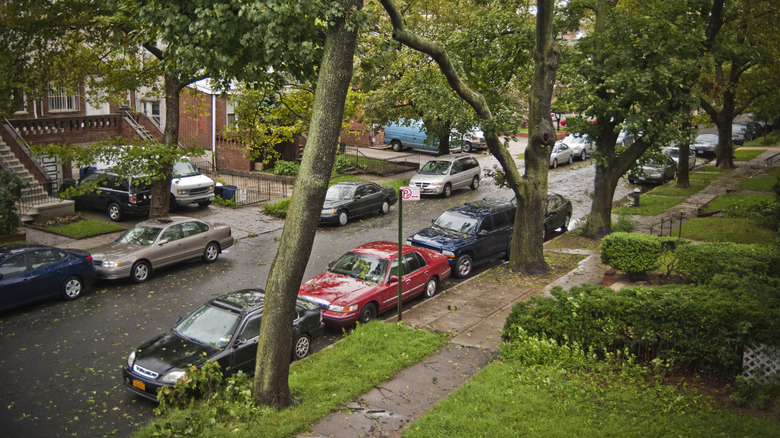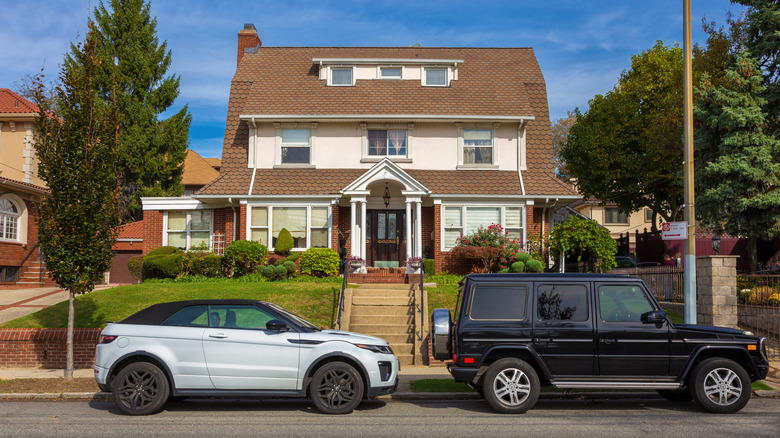Can Your Neighbor Legally Stop You From Parking In Front Of Their House?
Navigating the fine line of neighborly diplomacy can sometimes be as dramatic (and traumatic) as any high-stakes political negotiation on the world stage. With over 340 million people in the United States, you're just as likely to get a neighbor like Dennis the Menace as you are Mister Rogers. You may end up fighting over who needs to pay for the backyard fence a tree took down in a storm, who has the best Christmas decorations, the property line, or haggling over whether or not said neighbor can legally stop you from parking in front of their house.
The short answer to that last point is probably not, but it depends on a few things. Let's start with the big one: is the road public or private? Public roads are owned and maintained by a specific state or local municipality and not individual homeowners. Access is granted to the public as a whole, and no individual can lay claim to a specific parking spot. Placing traffic cones to block or "reserve" a space doesn't count either, since it's typically not legal.
Of course, there are caveats. You can't block someone's driveway or the fire department's access to a fire hydrant. Other things to keep in mind are the presence of colored curbs that indicate special parking zones or other signage outlining very specific parking regulations. A private road changes the playing field entirely, so you'd better be sure of the rules, because if you're parking on private property, you'll likely end up with a towed car.
Share and share alike
Fights involving private gated communities and Homeowners' Associations (HOA) have been the fodder for many Hollywood stories and pop-culturally iconic moments over the years. Still, their parking rules are highly regulated and may not be so funny if you violate one. Apartment complexes and condominiums typically have assigned parking spots and associated rules that govern their use as well. Since a plethora of strange driving laws are still on the books in the United States (including not parking in front of Dunkin' Donuts in Maine), it's wise to know your legal rights in the given scenario you find yourself in.
That includes knowing state and city laws. Texas's Transportation Code won't allow drivers to park on a sidewalk, block someone's driveway, park at an intersection, inside (or within 20 feet of) a crosswalk, or within 15 feet of a fire hydrant. Kentucky's Revised Statutes have similar laws and include not parking in front of a public (or private) driveway. Meanwhile, Florida law says you can't block a driveway — or park facing against the flow of traffic. Furthermore, there are laws against vehicles parked in the same spot for too long (usually 24 hours), and California has a statewide 72-hour limit (three days) for street parking.
So go ahead and park your car in front of the neighbor's house, but remember that when you find one parked in front of yours — and don't try to have it towed. The best rule of thumb is to never take these matters into your own hands and instead contact your local police department.

